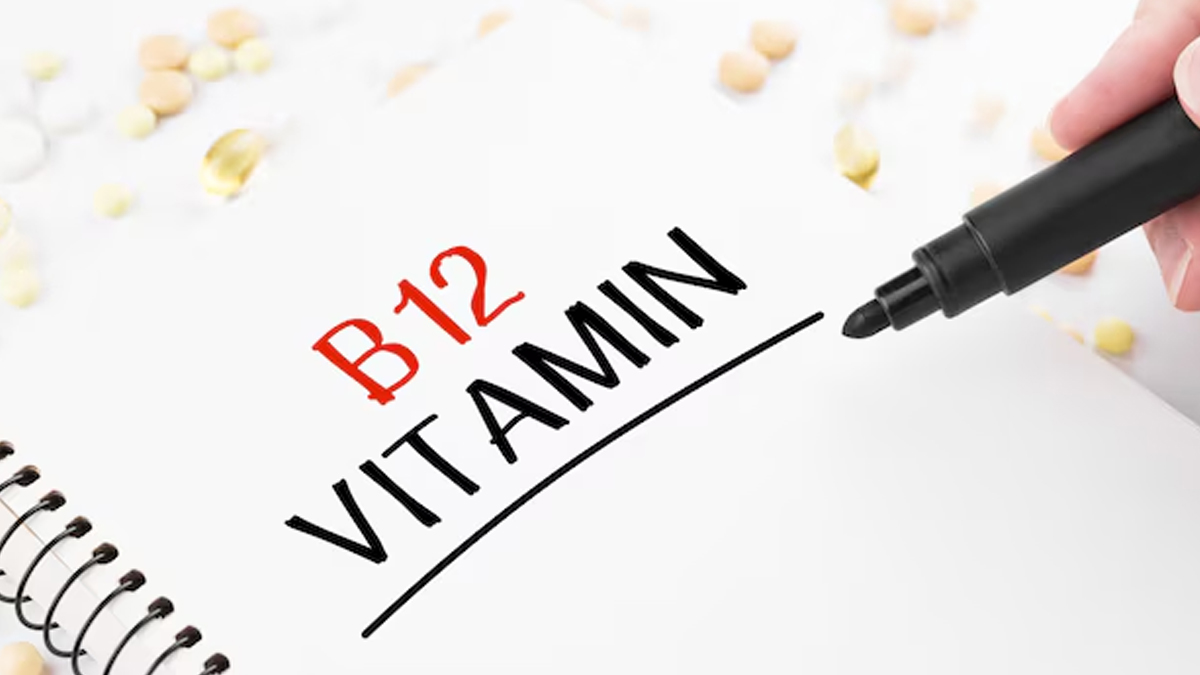
Judging by the title, you might wonder, How can guilt signal a nutrient deficiency? But according to experts, certain emotional shifts, like persistent guilt, could be linked to imbalances in the body, including lack of key nutrients like vitamin B12. This could be linked to B12's role in maintaining nerve and brain health.
Table of Content:-
In an interaction with the OnlyMyHealth team, Dr Bharath Kumar Surisetti, Consultant Neuro-Physician, Yashoda Hospitals, Hyderabad, sheds light on the connection and explains other signs – physical and psychological – of vitamin B12 deficiency.
Can Persistent Guilt Be A Sign Of Vitamin B12 Deficiency?

“Vitamin B12 is important for the development of the brain, nervous system and overall neurological function," shares Dr Surisetti, adding that it can lead to some neurological as well as psychiatric symptoms such as memory loss, cognitive decline, and mood disturbances.
However, while guilt could be linked to psychological conditions like depression and anxiety often associated with vitamin B12 deficiency, there is no direct evidence or enough studies that can suggest it can lead to experiencing guilt all the time, the doctor adds.
A 2022 study published in Vitamins and Hormones found that vitamin B12 deficiency can trigger neuropsychiatric symptoms like depression, anxiety, psychosis, and cognitive decline.
Additionally, it may worsen conditions like Alzheimer’s and increase the risk of delirium.
So, while not a direct or primary symptom, feelings of guilt can be associated with vitamin B12 deficiency, particularly when accompanied by other neurological and psychological symptoms.
Vitamin B12 Deficiency Or Psychological Condition: How To Differentiate?

According to Dr Surisetti, nutritional deficiencies may cause fatigue, neuropathy, glossitis, cognitive issues, and anxiety, which requires treatment through supplements.
On the other hand, persistent low mood, suicidal thoughts, or sleep/appetite changes are key signs of depression or any kind of psychological issue alongside guilt.
Such psychological issues are treated with therapy as well as antidepressants.
Common Psychological And Physical Symptoms Of Vitamin B12 Deficiency
Vitamin B12, also known as cobalamin, is an essential nutrient that plays an important role in various bodily functions, including DNA synthesis, Red Blood Cell (RBC) formation, nerve function, and energy production. It's crucial for maintaining healthy nerve tissue, brain function, and overall well-being.
Therefore, vitamin B12 deficiency can affect our mood and mental health, which may cause depression, anxiety, irritability, and short-term memory loss.
Common physical symptoms of vitamin B12 deficiency include:
- Fatigue
- Weakness
- Shortness of breath
- Pale or jaundiced skin
- Numbness
- Tingling and sensory changes
- Impaired balance and coordination
- Trouble walking or an unsteady gait
- Blurred or disturbed vision
Also Read: Can Vitamin B12 Deficiency Cause Greying Hair? We Asked An Expert
Who Is Most At Risk Of Vitamin B12 Deficiency?

Dr Surisetti notes that people with autoimmune diseases like type 1 diabetes or thyroid disease, vegetarians or vegans, heavy drinkers, people on certain medications like metformin or heartburn treatments, those with stomach or intestinal disorders like Crohn's disease or coeliac disease, and older adults, especially those over 75, are more at risk for vitamin B12 deficiency.
He adds, “As plant-based foods lack sufficient amounts of vitamin B12, all bioavailable B12 is missing. One should plan their diet, vegan or vegetarian, and strongly consider daily B12 supplements or fortified food to avoid deficiency.”
Diagnosis And Treatment Options
According to the doctor, vitamin B12 deficiency is diagnosed by a Complete Blood Count (CBC) and a vitamin B12 blood test level. “If a person's blood vitamin B12 level is less than 150 per millilitre, they are identified with vitamin B12 deficiency.”
The condition can be treated with a synthesised form of vitamin B12 called methycobalamin. “You could just require treatment until your vitamin B12 levels return to normal, or you might require vitamin B12 medication for your entire life, depending on the reason for the shortage.”
Treatment options for vitamin B12 include:
- Oral vitamin B12
- Intramuscular injections of vitamin B12 (a shot that goes into your muscle)
- Nasal gel containing vitamin B12
- B12 nasal spray
- Mouth dissolving patch
- Subcutaneous injections (pre-filled syringes)
Conclusion
While persistent guilt alone may not directly signal a vitamin B12 deficiency, it can be part of a broader set of psychological and neurological symptoms linked to low B12 levels. Recognising early signs, whether emotional or physical, is crucial, especially for those at higher risk. With timely diagnosis and appropriate treatment, vitamin B12 deficiency is entirely manageable. Consider speaking to a doctor to understand your supplementation requirements.
Also watch this video
How we keep this article up to date:
We work with experts and keep a close eye on the latest in health and wellness. Whenever there is a new research or helpful information, we update our articles with accurate and useful advice.
Current Version